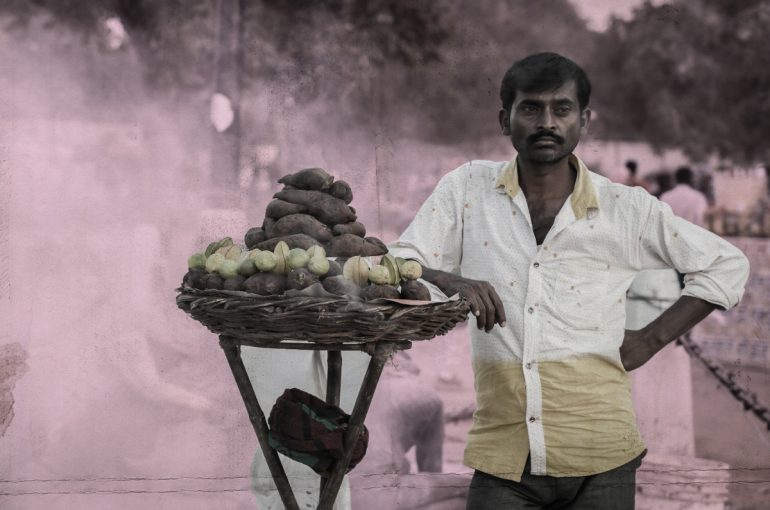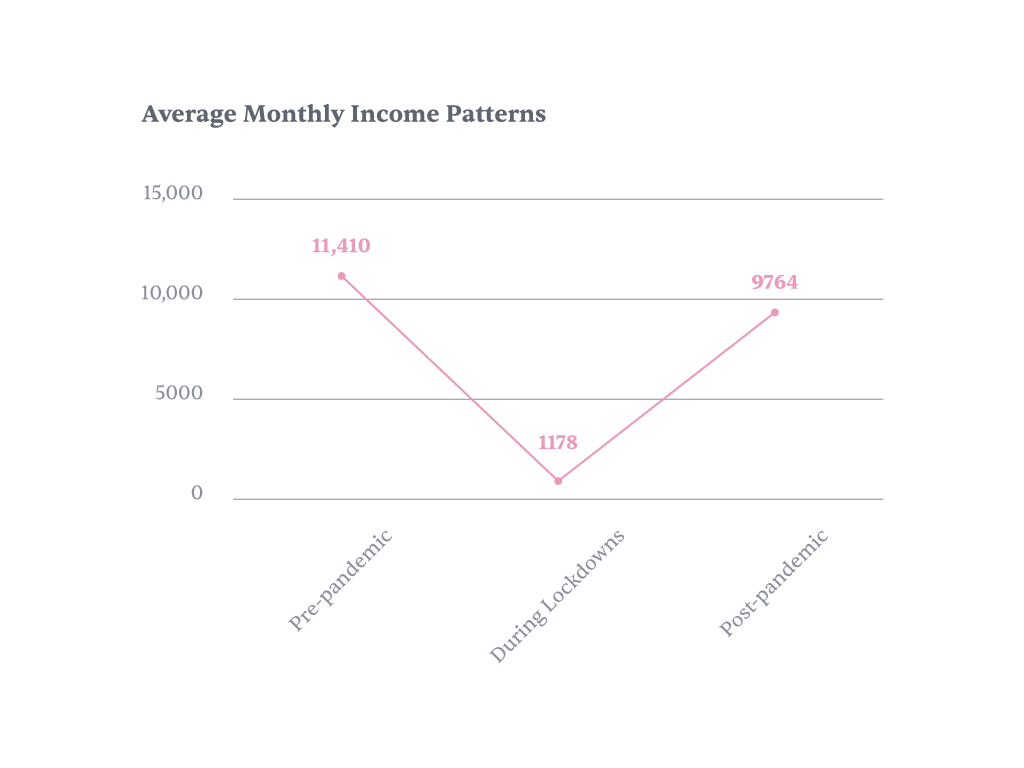Helping Micro-enterprises Stay Afloat in a Post-COVID Economy

By Megha Raha and Anveshi Gupta
01/ Introduction
The lockdown imposed an unwelcome closure of Dasharathi’s vegetable cart. Like everyone else, she too was struggling to make ends meet. When the lockdown eased, it was impossible for her to restart her business because by then, she had used up all of her life-savings to keep her family afloat.
I had no idea that the Indian government had announced a stimulus package for street vendors like us. It was the Haqdarshak Bhaiya who informed me about the PM SVANidhi Yojana.
—Dashrathi, Vegetable Cart Vendor
She is now investing this money to get her business up and running again. Even in these uncertain times, Dashrathi prefers running her own business to working as a daily wage labourer.
Street vending can be cruel. Vendors often fight for space and are mistreated — the police and municipal corporations are not very helpful either. It is difficult to deny that the city’s poor — often rural in origin and orientation — are acceptable to the city’s elite only as service providers, preferably invisible. That said, for the economically vulnerable, street vending is also the most lucrative, desired, and available of all employment opportunities.
These micro-businesses provide multiple advantages — geographical convenience, accessibility, and affordability. As per the report — ‘Strengthening urban India’s informal economy: The case of street vending’ by Ramnath Jha — it is estimated that there are around 1 crore street vendors across the country. They provide valuable services to a major part of the population, especially the middle class and the lower-income groups.
However, the nationwide lockdown was devastating for them, as it was for many other workers in India’s massive informal economy. These microentrepreneurs had to survive on multiple debts from informal sources.
The launch of PM SVANidhi (The PM Street Vendor’s AtmaNirbhar Nidhi) has given them hope. INR 5,000 crore has been allocated to benefit almost 50 lakh street vendors in the form of collateral-free loans.
In the PM SVANidhi Yojana, beneficiaries were pledged a loan amount of INR 10,000 in order to rebuild their businesses and get back up on their feet. At Haqdarshak, we helped 5000 beneficiaries in filling up forms for this stimulus package! As always, we ensured that the scheme’s benefits were delivered.
02/ Pre-Covid Scenario?
Street vendors have always held a historically significant position in the economic graph of India. According to the Ministry of Urban Development and Poverty Alleviation, there are over one crore street vendors in India contributing to 50% of the country’s savings. In fact, 63% of the country’s GDP comes from these vendors! The plight of the street vendors has been one of the most debatable topics among policymakers. The Street Vendors Act 2014 came as a turning point for the community. For grievances, they now have a committee to go to. At the same time, other challenges have persisted — meagre wages, eviction or confiscation of goods, police brutality, no legal recognition, improper regulation of vending, inability to access government schemes or facilities, and lack of social security.
In November, 2021, Haqdarshak conducted a Needs Assessment survey with around 140 Uber drivers from urban NCR, Maharashtra, and Karnataka. In the survey, around 61% shared that they needed more information about the schemes they could apply for. Around 71% had never heard about the e-Shram card and wanted more information from us about it. However, some of the survey participants also expressed doubts about receiving any benefits from it.
03/ Impact of Covid-19 on Street Vendors
I used to fund my education by selling vegetables. When the lockdown was imposed, I had no income, and so I got worried about my academic future. I was so relieved when I came to know about the PM SVANidhi scheme from the ‘Haqdarshak’ in our area! I could restart my business and get back to studying again.
—Priya
When we interviewed street vendors across Rajasthan, Gujarat, and Andhra Pradesh for our study, around 60% of the respondents mentioned their incomes coming down to zero when the nation was hit by the pandemic. Our study also indicated other key challenges faced by them. Vegetable vendors, fruit sellers, and tea stall owners — a majority of the beneficiaries under the PM SVANidhi Yojana — were completely unaware of the procedure and eligibility for applying for the scheme. They also did not have the necessary documentation.
Another key finding of our study was that even with the formal credit facilities in place, 90% of our respondents showed interest in availing loans from local moneylenders and Sahukars. It highlights a bigger gap in awareness among the beneficiaries regarding financial institutions. Their reasons included ease of availability, repayment flexibility, and lack of trust in the bureaucratic system.
The procedure to apply for the credit scheme was particularly complicated for the ones who did not have any documents in place. Our team assisted them in getting their identity cards made, opening their bank accounts, and setting up their digital wallets. Furthermore, our relationship with the municipal corporations gave us credibility. With the help of the local body, we set up kiosks on their premises for street vendors who lacked the confidence in applying for the scheme.
We had lost our livelihood along with the entire chunk of our life savings during the lockdown. We had no other option but to take a loan from a local Sahukar at a high rate of interest. With Haqdarshak’s support, we were able to get the benefit of PM SVANidhi Yojana. We used the money to restart our business, and will now be able to pay back our debts.
—Zarina, Bangle Seller, Rajasthan
73% of the beneficiaries like Zarina have reinvested the loan amount to rebuild their businesses.
As per our study, the recovery from this post-lockdown income shock has been slow. The following graph illustrates this better.

Source: HQ Report 2021
While there is recovery, it has been gradual, with a 14% decrease in the average monthly income as compared to the pre-pandemic period.
My earnings declined by 70% post-COVID, and it was difficult for me to find more work. It was after the support of Haqdarshak that I could avail the benefits under the PM SVANidhi scheme. The credit amount helped me renew my tailoring unit. I also hired another girl from my community.
—Yashoda Shreemali
In a post-pandemic world, vulnerable communities such as street vendors need assistance in rebuilding their businesses from scratch. At Haqdarshak, our aim is to promote economic independence among communities to create further employment opportunities within their ecosystem.
04/ Further Readings
- Street Vendors (Protection of Livelihood and Regulation of Street Vending) Act, 2014
- State of Street Vendors in India: Pre and Post COVID-19 Analysis
- Strengthening Urban India’s informal economy: The case of street vending
- Only 11% Of Vulnerable Street Vendors Benefitted From PM Credit Scheme: Survey



